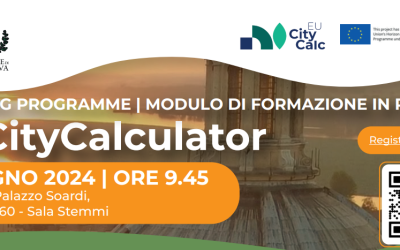A new toolkit to support local authorities in tailoring their engagement with policymakers to scale up local climate action
How to navigate the wide sea of EU funds and regulations?
What’s in the Fit for 55 package for cities?
What can cities ask their governments to reinforce their climate action measures?
How to influence the review of the National Energy and Climate Plans (NECPs)?
If in the report National and EU factors affecting EUCityCalc pilot cities’ climate transition we analysed challenges and opportunities, the recently published toolkit Tracking EU climate policy and engaging with policymakers: a toolkit for cities to unlock climate action strives to answer these and more questions.
Empower cities now to achieve climate neutrality
Without equipped and committed cities, there will be no green transition at all. Indeed, cities and local authorities are essential to incorporate into national and EU climate policymaking processes.
They often set ambitious climate targets and actually end up implementing many of the policies that are decided at higher levels of government, but they also rely on support from their regional and national governments in terms of finance and capacity as well as in overall policy coordination to unlock their full climate mitigation potential. However, in many cases, cities are not adequately consulted or involved in climate policymaking processes.
Tracking EU climate policy and engaging with policymakers: a toolkit for cities to unlock climate action aims to support cities and local authorities in their engagement with regional and national policymakers, as well as with EU decision-makers. As a first step, the toolkit provides an overview of the EU’s Governance Regulation, namely its provisions for multi-level climate governance, the milestones for countries’ revisions of their NECPs through June 2024, and the role of cities in this. It also dives deeper than the NECP process alone, exploring the role of cities in related legislation under the EU Green Deal with important implications for urban climate action. The report summarises the important parts of these pieces of legislation for local authorities, which can serve to reinforce their efforts to support climate measures, raise funds, and coordinate with their regional and national governments.
In addition, the toolkit proposes advocacy approaches and concrete tips for cities and local authorities to engage with policymakers in their national governments and at the EU-level to boost local climate action. In particular, the report focuses on how cities can use the visualisations and data from the European City Calculator tool to make their voices heard and to make the case for their successes and needs to their governments.
Each city and country in Europe and around the world face unique contexts which present different opportunities and challenges. Therefore, this toolkit is not intended to provide a one-size-fits-all solution. The details of the EU climate policy context and the proposed methods of engagement presented in this report are intended to empower cities and local authorities to define strategies and approaches that best fit their context in order to secure stronger support for their climate action measures at all levels.
To find out more details about EU climate policies with relevance for cities as well as tips for how cities can engage with national and EU policymakers, check out the full toolkit!











